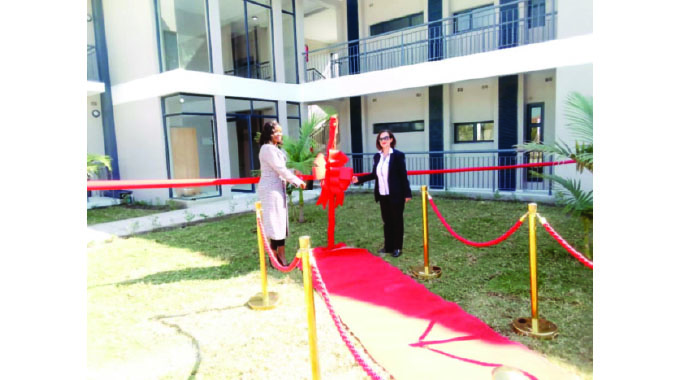Farmers suffer lockdown effects

Business Writer
Despite their activities having been designated as essential services since the start of Covid-19 induced lockdowns, farmers have not entirely been spared from the ravages of the pandemic, new research has revealed.
In a research titled “Covid-19 impact on Zimbabwean agricultural supply chains and markets: A sustainable livelihoods perspective,” four lecturers from the Marondera University of Agricultural Science & Technology (MUAST) concluded that as a result of lockdown measures put in place to fight the pandemic, agricultural production has been negatively affected.
“The impact varied from inability to access inputs as a result of movement restrictions to unavailability of adequate labour due to social distancing requirements,” reads part of the research done by MUAST lecturers Tanyaradzwa Rukasha, Brighton Nyagadza, Rumbidzai Pashapa and Asphat Muposhi.
The research pointed out that farmers are faced with challenges, including lack of transport as most transporters are not allowed to travel under the lockdown guidelines.
“For the produced goods, farmers are facing challenges accessing markets.
“Additionally, some illegal structures belonging to small and medium enterprises and informal traders have been destroyed across the country.”
This has affected farm produce vendors.
The informal sector contributes significantly to the development of the country’s economy (estimated over 60 percent of GDP and 85 percent of jobs).
The research concluded that the disruption of the agriculture supply chain will most likely have an impact on the well-being of the consumers and the economy at large.
Not only will vulnerable consumers experience greater difficulties accessing enough food for survival and adequate nutrition due to Covid-19 but also many individuals and whole communities that rely on them for food production.
Agricultural expert Mr Charles Dhewa corroborated the research findings and said farmers had suffered from suppressed consumer buying power due to the disruption of SMEs who are the main customers for commodities from smallholder farmers.
He said most commodities from rural areas come to markets on long-distance buses whose movement has been affected by lockdowns for a greater period of the lockdown, with some still to regularise their relationship with ZUPCO as directed by Government.
“The state of roads to farming areas has also remained poor causing some transporters to be reluctant to go and fetch commodities to the market,” Mr Dehwa said.
He suggested that the abundant rainfall received in the past season was a curse in disguise as some of the losses suffered by farmers were due to over-production due to abundant rainfall.
“Urban agriculture has boomed this year such that urban consumers who often buy from smallholder farmers have produced their food in cities.
“Many SMEs in non-agric businesses who had been put on lockdown went into farming, contributing to huge gluts and losses.”
Mr Kuda Musasiwa, the Founder of Fresh In A Box said despite the agriculture sector being exempt from Covid-19 lockdown restrictions, farmers were turned back at roadblocks.
He said with some farmers relying on public transport to bring in their produce, the ban on some transporters had affected product supply to the market.
“A lot of farmers have never returned to our supply chain because they were totally decimated by the lockdown and the inconsistency of the rules and the inconsistency of implementation.”
The MUAST researchers suggest that with the unavoidable impact of Covid-19 on farmers, the Government must increase its support towards farmers, especially smallholders, as well as all the vulnerable households that directly depend on land and agriculture-related activities, both for livelihood development and incomes.
“The Government should expand the fiscal space and offer subsidies to farmers either in the form of loans or inputs and equipment. This can help in stimulating and sustaining farm operations, and ensure that production does not halt as this is the heart of the whole agriculture supply chain. Secondly, there is need to establish collection centres closer to producers to reduce the need for mobility,” they suggested.
The researchers, however, acknowledged that establishing collection centres requires an improvement of storage facilities so as to reduce post-harvest crop losses along the supply chain.
“Lastly, farmers in Zimbabwe are lagging behind as far as technological advancement is concerned. There is a need to accelerate the development of e-commerce for farmers to limit the need for in-person transactions, especially in this era of social distancing and movement restrictions.”
Full report: www.ebusinessweekly.co.zw.











Comments